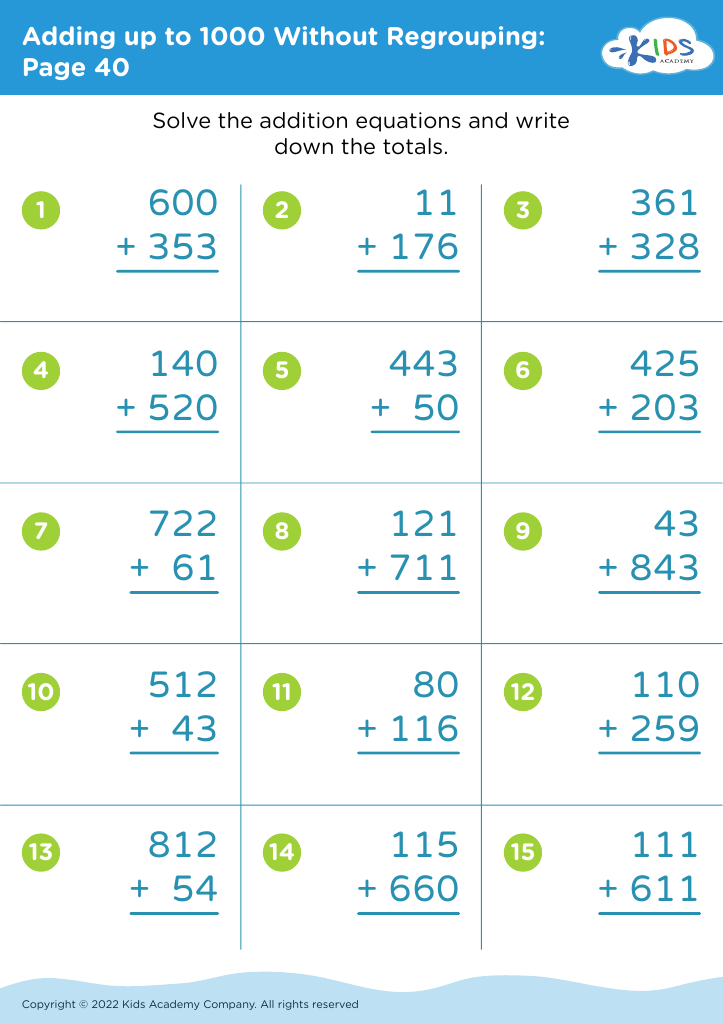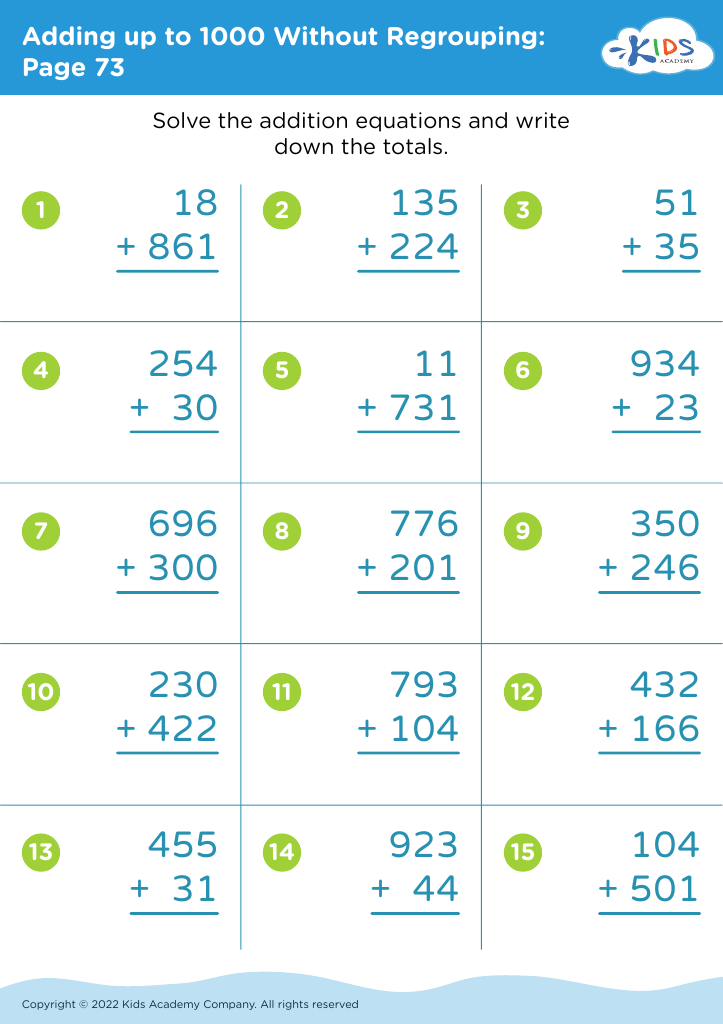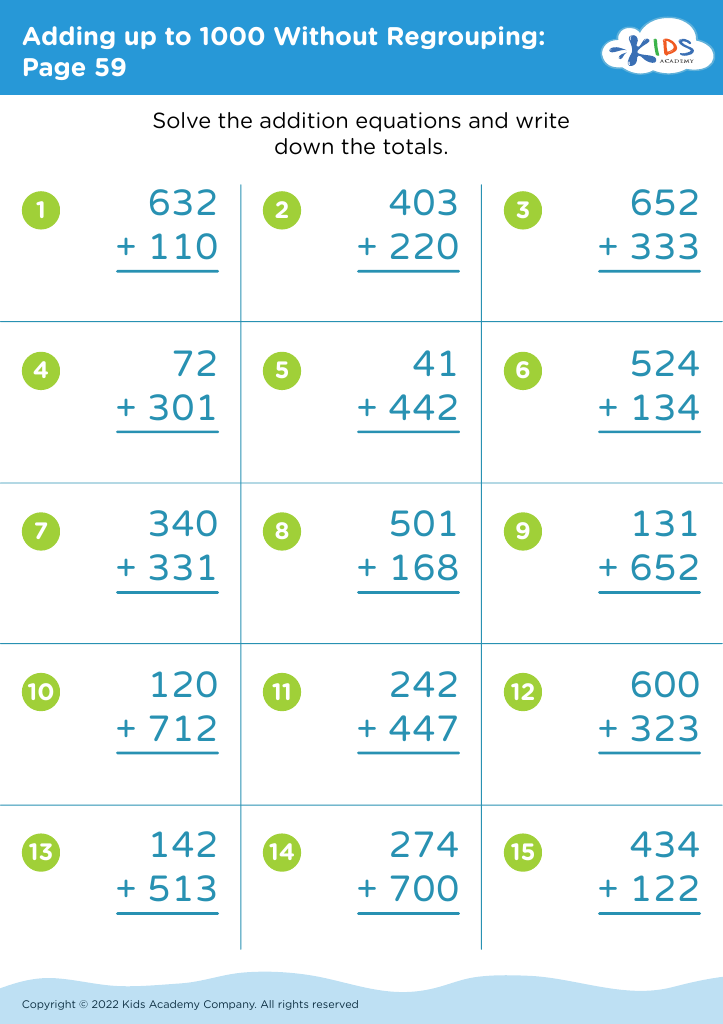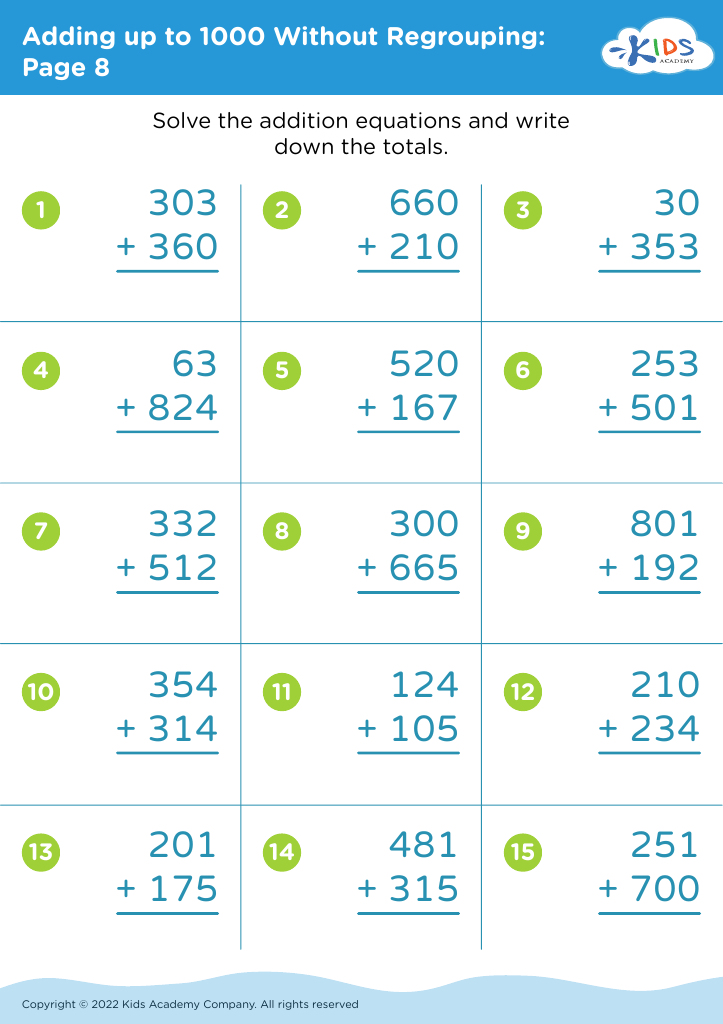Improve reading skills Adding up to 1000 Without Regrouping Worksheets for Ages 7-9
6 filtered results
-
From - To
Boost your child's math and reading skills with our "Adding Up to 1000 Without Regrouping Worksheets" tailored for ages 7-9. These engaging worksheets feature a blend of math problems and reading challenges designed to enhance comprehension and arithmetic abilities simultaneously. Each worksheet focuses on addition without regrouping, ensuring children build confidence with basic operations while improving their reading proficiency. Illustrated with fun themes and clear instructions, these worksheets promote learning in a fun, interactive way, making math and reading practice enjoyable and effective. Discover the perfect resource to support your child's educational journey today!
Improving reading skills and mastering addition up to 1000 without regrouping are crucial for children aged 7-9, as they form foundational pieces for future academic success. Reading promotes cognitive development, comprehension skills, and vocabulary expansion, enabling students to understand and connect with the world around them. As children progress in reading, they acquire the skills necessary to grasp complex concepts across various subjects and contexts. This critical ability enhances their learning capacity, facilitating broader educational achievements.
Simultaneously, the ability to add up to 1000 without regrouping builds essential math proficiency and confidence. This arithmetic skill underpins more complex mathematical operations such as multiplication, division, and algebraic thinking. It also nurtures logical thinking, problem-solving, and numerical-fluency.
Evidently, both subjects are intertwined. Strong reading skills allow children to follow math instructions better and comprehend math problems, thus solving them efficiently. Conversely, understanding math helps students approach reading materials that involve numbers and data analytically.
Parents and teachers should therefore prioritize both abilities to create a well-rounded educational foundation. Ensuring proficiency in these areas aids children in achieving academic milestones, thereby setting a sturdy groundwork for future educational endeavors and life-long learning.游戏
















